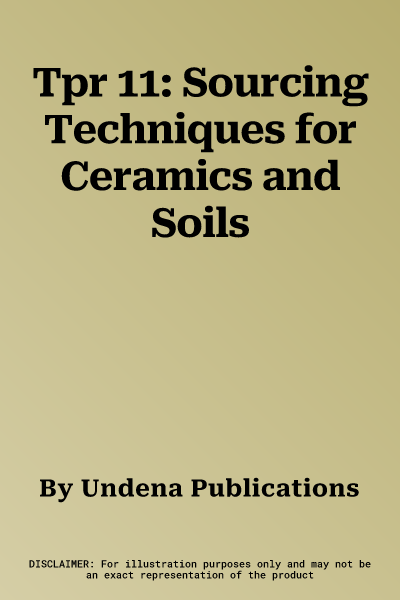Undena Publications
(Author)Tpr 11: Sourcing Techniques for Ceramics and SoilsPaperback, 31 December 1980

Qty
1
Turbo
Ships in 2 - 3 days
In Stock
Free Delivery
Cash on Delivery
15 Days
Free Returns
Secure Checkout

Part of Series
Syro-Mesopotamian Studies
Language
English
Publisher
Undena Publications
Date Published
31 Dec 1980
ISBN-10
0890039682
ISBN-13
9780890039687
Description
Product Details
Author:
Book Format:
Paperback
Country of Origin:
US
Date Published:
31 December 1980
Genre:
Ancient (To 499 A.D.)
ISBN-10:
0890039682
ISBN-13:
9780890039687
Language:
English
Location:
Malibu
Publisher:
Series:
Weight:
1419.74 gm